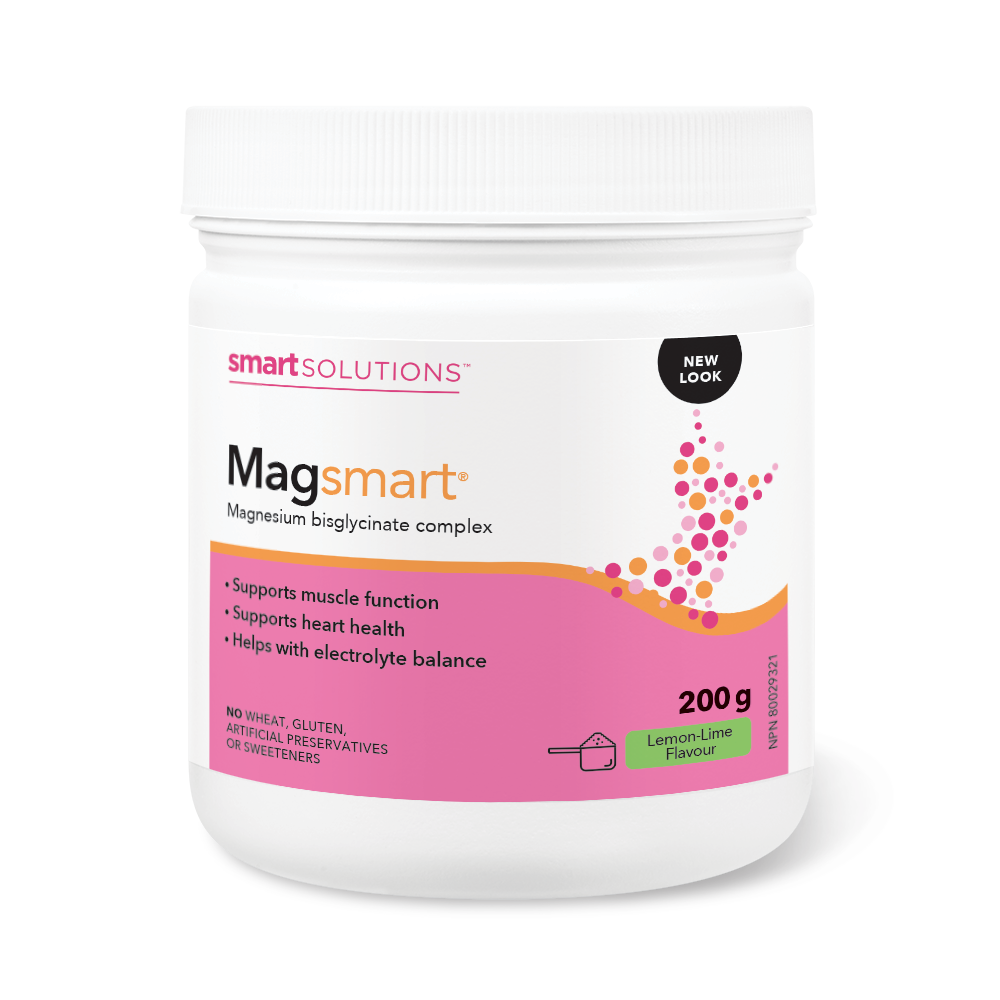MagsmartOne-time purchase$21.99
Add to Cart
MagsmartOne-time purchase$21.99
Add to Cart
Limited Time Only - Free Shipping On ALL Orders
MagsmartOne-time purchase$21.99
Add to Cart
MagsmartOne-time purchase$21.99
Add to Cart
















LV0101
$21.99
Magsmart is a comprehensive formula that combines the benefits of magnesium bisglycinate with additional co-factors that support heart health, muscle function, metabolism, and energy.
Magnesium bisglycinate is an effective yet gentle form of magnesium. Magnesium bisglycinate is a high quality form of magnesium that can be taken in higher quantities without a laxative effect on the bowels.
Who is it for?
Magsmart is beneficial for anyone who is looking for extra support for energy, muscle function and heart health.
Magsmart 101
Magnesium is a foundational mineral involved in over 300 different processes in the body. Deficiency in magnesium intake can impact health throughout the body. Certain populations including the elderly, those with chronic conditions, type 2 diabetes, poor nutrition, or alcohol dependency are at greater risk for magnesium deficiency. Adequate levels of magnesium have been shown to positively correlate with a reduction in migraine headaches.
Adults: Mix 1 tablespoon/scoop (6.7 g) in 125 mL (4 oz) of water to taste or as directed by a health care practitioner.
EACH TABLESPOON/SCOOP (6.7g) CONTAINS:
| Malic Acid | 1563 mg |
| Taurine | 500 mg |
| L-Glutamine | 500 mg |
| Elemental Magnesium (bisglycinate) | 280 mg |
| Inulin | 270 mg |
| Vitamin E (D-alpha tocopheryl acetate) | 100 UI |
| Potassium (aspartate) | 57 mg |
| Vitamin B6 (Pyridoxine hydrochloride) | 50 mg |
| Vitamin B1 (Thiamine hydrochloride) | 25 mg |
| Vitamin B3 (Niacinamide) | 20 mg |
| Calcium (Dicalcium phosphate dihydrate) | 18 mg |
| Folic acid | 150 mcg |
| Molybdenum (citrate) | 60 mcg |
| Selenium (Selenomethionine) | 25 mcg |
| Vitamin B12 (Methylcobalamin) | 20 mcg |
Other ingredients: Citric acid, stevia leaf extract, natural flavour and bamboo silica.
This product does not contain irradiated rice flour, artificial preservatives, colors or sweeteners; no dairy, gluten, GMOs, wheat or yeast. VEGAN-FRIENDLY. GLUTEN-FREE.
Magnesium bisglycinate is a bioavailable form of magnesium bound to the amino acid, glycine. This mineral is essential for muscular function, while supporting cardiovascular health and glycemic control.
Taurine is an amino acid and an essential component of proteins used by the heart and nervous system. Taurine supports cardiovascular health and the relaxation of muscles, including those that control intestinal motility.
Glutamine is the most abundant amino acid in the body. It is vital for gut health and provides immune support via glutathione production.
Inulin is a plant-derived pre-biotic fibre that supports ease of defecation.
Huxtable, RJ. Physiological Actions of Taurine. Physiol Rev.1992; 72 (1): 101-63.
Kim MH, Kim H. The Roles of Glutamine in the Intestine and Its Implication in Intestinal Diseases. Int J Mol Sci. 2017;18(5):1051. Published 2017 May 12. doi:10.3390/ijms18051051
McCarty MF. Complementary vascular-protective actions of magnesium and taurine: a rationale for magnesium taurate. Med Hypotheses. 1996;46(2):89?100.
Porter NS, Jason LA, Boulton A, Bothne N, Coleman B. Alternative medical interventions used in the treatment and management of myalgic encephalomyelitis/chronic fatigue syndrome and fibromyalgia. J Altern Complement Med. 2010;16:235–249.
Uysal N, Kizildag S, Yuce Z, et al. Timeline (Bioavailability) of Magnesium Compounds in Hours: Which Magnesium Compound Works Best? Biol Trace Elem Res. 2019;187(1):128?136.
Vandeputte D, Falony G, Vieira-Silva S, et al. Prebiotic inulin-type fructans induce specific changes in the human gut microbiota. Gut. 2017;66(11):1968?1974.
We use cookies on our website to give you the best experience. By using this site, you agree to its use of cookies.